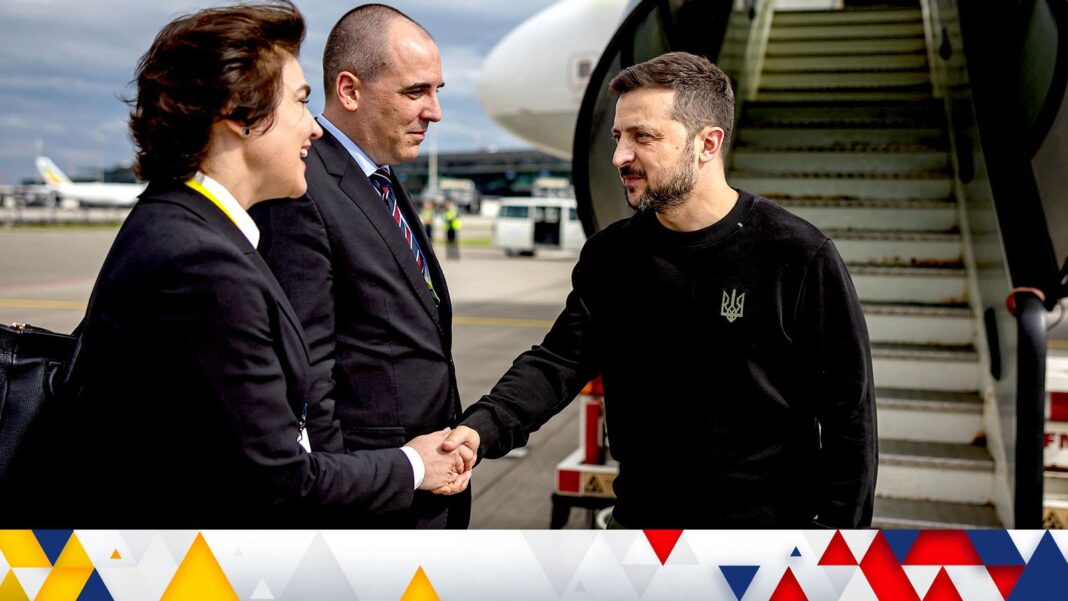China and Russia will not be at peace summit – but unity is important to maintaining the West’s edge
International affairs editor
It has been another bad week for Vladimir Putin.
He started his war in Ukraine to limit Western expansion, he says.
It is accelerating apace entirely because of his aggression.
In direct response to his unprovoked invasion, Ukraine has been able to sign a ten-year security pact with America this week, a bridge to its eventual membership of NATO, even if that is still a very, very long way away.
And Putin has been powerless to stop the West taking $300bn (£237bn) worth of frozen Russian assets and use the interest to wire $50bn (£39bn) worth of aid to Ukraine.
That has got to sting.
EU accession talks for Ukraine will also begin before the end of the month.
For all their mounting domestic challenges, Putin’s enemies are keeping up the pressure, moving from the Adriatic coast to the Swiss mountains this weekend to continue diplomatic efforts against his aggression.
Ukraine has called a “peace summit” in Lucerne. It may be disappointed at the turnout. Only 90 of the 160 nations invited are expected, most of them European nations.
Many nations from the so called global south are either not coming or sending lower level delegations than Kyiv had hoped.
They are maintaining neutrality, some persuaded by Russia’s false narrative about, but many just view the far away conflict as a way of making money, seduced by cheap Russian hydrocarbons or diplomatic bribes being handed out by Moscow.
China says it “hardly able to take part in the meeting” unless Russia was included on an equal footing.
Beijing is also benefiting handsomely from this conflict, reaping a bonanza in cut-price Russian oil and exploiting the unequal relationship with relish.
But the support has arguably exposed forever as a sham one of the fundamental tenets of Chinese foreign policy, that interference in the sovereign affairs of another country, let alone unprovoked invasions, should never be tolerated.
For the West, the prelude to this peace summit has been mixed. The diplomacy at the G7 in Bari packed a punch and creatively overcame differences, particularly over that deal to leverage frozen Russia assets.
But the allies seemed distracted and fractious. Far right forces no doubt helped by Russian online meddling are coming for them back home.
There is mounting concern about both the increasingly likely return of Trump and Macron’s decision to bet the house in a bold if not reckless bid to save the French Republic.
Putin’s recent military gains in Ukraine appear to have been slowed. He has the numbers when it comes to shells and men.
But in terms of quality, the West has an unbeatable edge, if it has the unity and will to exploit it.
That remains an open question two and a half years into this war and the current political outlook for each of its leaders is hardly encouraging.







